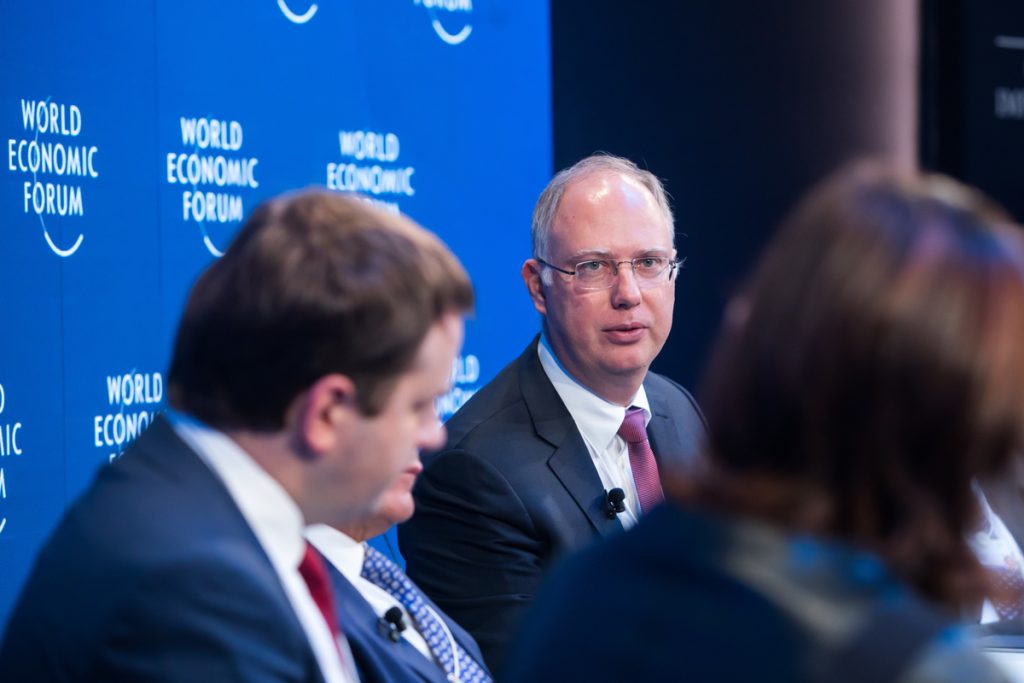Listen to the article
Russian Envoy’s Washington Visit Met with Rare Public Rebuke
A high-profile visit to Washington by Kirill Dmitriev, Russian President Vladimir Putin’s special envoy for investment and economic cooperation, has deteriorated into a diplomatic confrontation after a senior U.S. official delivered an unusually blunt public rejection of the Kremlin representative’s claims.
Treasury Secretary Scott Bessent publicly dismissed Dmitriev as a “Russian propagandist” during an appearance on CBS’s “Face the Nation,” challenging the envoy’s assertion that new U.S. sanctions would have “absolutely no effect on Russia’s economy” and would only lead to higher gas prices for American consumers.
“Are you really going to publish what a Russian propagandist says?” Bessent asked, questioning the value of even broadcasting the envoy’s message. “What else is he going to say, that, oh, it’s going to be terrible and it’s going to bring Putin to the table?”
Dmitriev, who heads the Russian Direct Investment Fund (RDIF), arrived in the United States shortly after the Trump administration imposed fresh sanctions targeting Russia’s oil and gas sector and canceled a planned summit with Putin. The administration cited Russia’s unwillingness to agree to a ceasefire in Ukraine as the reason for the cancellation.
Bessent contradicted Dmitriev’s claims about Russia’s economic resilience, noting that the country’s oil earnings were already down 20% year over year, with new measures expected to reduce them by “another 20 or 30 percent.” The Treasury Secretary characterized Russia’s economy as a “wartime economy” with virtually zero growth and inflation exceeding 20 percent.
“Oil funds the Russian war machine, and I think we can make a substantial dent in his profits,” Bessent stated, adding that India has “done a complete halt of Russian oil purchases” and “many of the Chinese refineries have stopped” in response to the new sanctions.
The Trump administration’s direct challenge to the Russian envoy’s rhetoric received immediate praise from advocates of a tougher stance against the Kremlin. A senior Republican congressional aide told Kyiv Post that Bessent’s characterization of Dmitriev was a “welcome move,” adding that Moscow’s “brazen lies have strangely been allowed to fly publicly for too long” and it’s “time to call a spade a spade.”
Doug Klain from Razom, a U.S.-based organization advocating for Ukrainian interests, described the overall trip as a failure. “It looks like Dmitriev’s visit fell flat, and rightly so. The Kremlin has plenty of pretty words for the U.S. but it’ll take real action to end Russia’s war to change things,” he said.
Analysis from the Institute for the Study of War (ISW) suggests that Dmitriev’s media appearances in Washington—including interviews with CNN and Fox News—represented a calculated attempt to disseminate Kremlin narratives in response to mounting pressure from new sanctions and the summit cancellation.
Despite promoting “constructive dialogue” and suggesting ambitious economic cooperation projects like a tunnel under the Bering Strait, ISW noted that Dmitriev’s core message simply “reaffirmed that Russia’s maximalist demands remain unchanged.”
The envoy repeatedly claimed that NATO expansion constitutes an “existential threat” to Russia and that the United States must concede to Russia’s interests. Dmitriev’s economic outreach was characterized by ISW as a strategic effort to use incentives to pressure the United States into ending the war on terms favorable to Russia.
Though Dmitriev insisted he represented only economic interests, analysts noted he included veiled threats, stating that the “security of the whole world” was at stake and that the “complete annihilation of humanity” was close—widely interpreted as a reference to Russia’s nuclear capabilities.
The diplomatic mission, intended to project strength and openness to dialogue, instead provided U.S. officials and analysts an opportunity to publicly expose what they see as the unchanged nature of the Kremlin’s war objectives and its reliance on disinformation.
According to reports, the only confirmed meeting Dmitriev secured was a low-profile encounter with Republican Congresswoman Anna Paulina Luna of Florida. Dmitriev claimed on social media that Luna was organizing a push for “parliamentary dialogue” between U.S. Congress members and the Russian Duma—a claim that Republican congressional aides dismissed as “a propagandist’s lie.”
Verify This Yourself
Use these professional tools to fact-check and investigate claims independently
Reverse Image Search
Check if this image has been used elsewhere or in different contexts
Ask Our AI About This Claim
Get instant answers with web-powered AI analysis
Related Fact-Checks
See what other fact-checkers have said about similar claims
Want More Verification Tools?
Access our full suite of professional disinformation monitoring and investigation tools




7 Comments
This incident reflects the challenging diplomatic landscape between the US and Russia. It’s a delicate balance to address valid concerns about Russian influence while also preserving opportunities for constructive dialogue.
The Russian envoy’s visit and subsequent public rejection highlight the ongoing power struggle between the US and Russia. It will be interesting to see if this incident leads to further escalation or a path towards improved relations.
While I understand the desire to confront perceived Russian propaganda, the Treasury Secretary’s dismissive tone is concerning. Maintaining open channels of communication, even with adversaries, is often crucial for managing geopolitical tensions.
This diplomatic confrontation highlights the ongoing tensions between the US and Russia over sanctions and economic policy. It’s concerning when officials dismiss foreign representatives as mere ‘propagandists’ rather than engaging in substantive dialogue.
Sanctions are a complex geopolitical tool, with impacts that can be hard to predict. I’m curious to see how this situation evolves and whether the US and Russia can find common ground on economic cooperation.
The Treasury Secretary’s public rebuke of the Russian envoy seems quite harsh. While there are certainly valid concerns about Russian propaganda, dismissing the envoy so bluntly may further strain relations between the two countries.
You raise a good point. Diplomatic tensions often make nuanced discussion difficult, but a more measured approach may be more constructive in the long run.